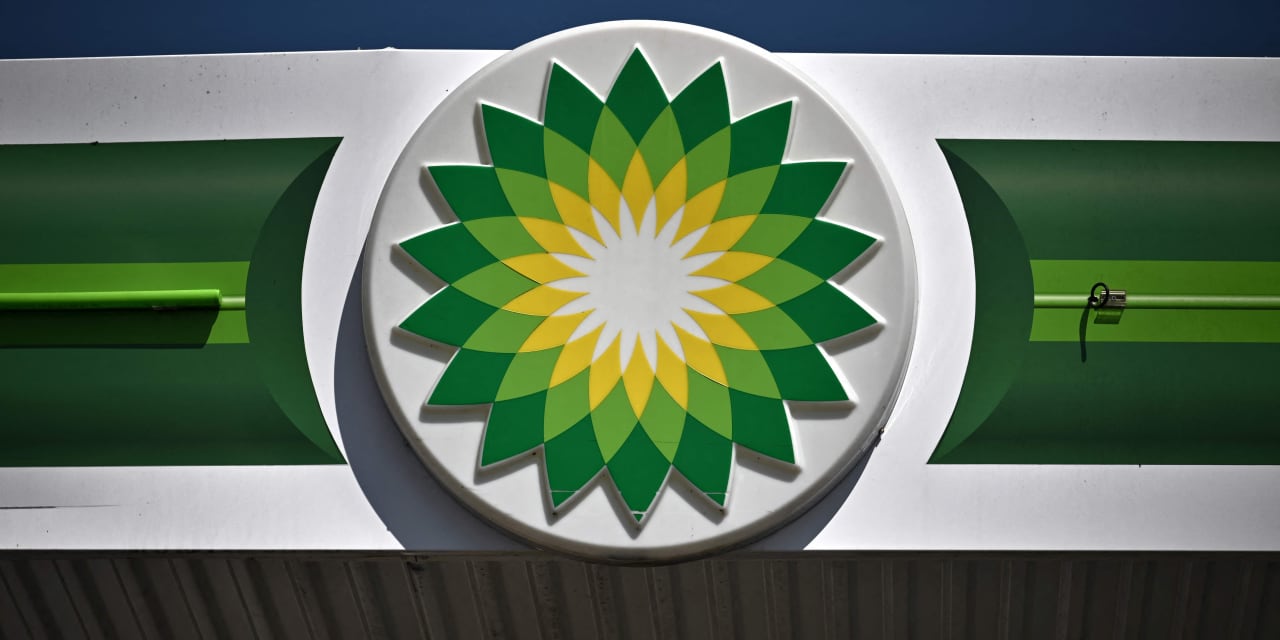BP shares posted their biggest rise in a year on Tuesday after the oil company pledged to increase its returns to shareholders, despite reporting a sharp drop in its profits, while doubling down on its green transition plans.
Shares in BP surged 7% on Tuesday, marking the sharpest increase in the oil company’s stock price since last February, as the British oil major hiked its dividend and vowed to buy back more of its shares.
BP
BP,
BP,
shares have increased 2% in the year so far having made gains of less than 1% over the past 12 months.
The FTSE 100 company beat analysts’ expectations, as it reported a less-than-expected 38% drop in its underlying replacement cost profit to $2.99 billion, topping estimates of $2.77 billion, as lower oil and gas prices led to a dip in the company’s favored profit metric compared to 2022.
The London headquartered firm also vowed to push forward with plans to transform itself into a clean energy player.
New CEO Murray Auchinloss said BP’s “destination remains unchanged,” as he vowed to push ahead with efforts to turn BP from an international oil company into an international energy company, with a view to boosting “long term value for shareholders.”
Bernard Looney, who took control of BP in February 2020 in succeeding former CEO Bob Dudley, led the oil major’s ambitious plans to transition into a greener company before suddenly exiting the company following an investigation into alleged relationships with colleagues.
The doubling down sits in stark contrast to the turnaround now being enacted by BP’s main European rival, Shell
SHEL,
which last week outlined plans to lower its investments in renewables after previously scrapping its pledge to cut oil and gas production by 1-2% each year in June 2023.
BP has previously faced calls from activist investor Bluebell Capital to reverse its green plans, over claims its plans to cut its oil and gas output by 25% by 2030 will see it transition away from fossil fuels faster than wider society, in a push that will undermine shareholder value.
Across 2023, BP posted underlying replacement cost profits worth $13.8 billion, down 49% compared to the bumper $27.2 billion it posted in 2022, during which oil and gas prices were buoyed by Russia’s invasion of Ukraine.
Throughout 2023, the energy major achieved an average liquids price of $72.69 per barrel, down 19% year-on-year, and average natural gas prices of $5.6/ million cubic feet, down 40% year-on-year.
BP upped its dividend by 10% and vowed to return 80% of all surplus cash flow to shareholders, compared to previous guidance of 60%, including by launching $1.75 billion worth of share buybacks by May, $3.5 billion for the first half of 2023, and at least $14 billion through 2025.
“Rather than following Shell’s example BP appears to be sticking with the current strategy and focussing on pacifying shareholders with throwing extra cash their way,” CMC Markets UK’s chief market analyst Michael Hewson said.
BP in 2023 launched four new oil and gas projects, including the North Sea Seagull project which is set to see the company generate an extra 15,000 barrels of oil a day by 2025. The oil major also launched exploration ventures in the Gulf of Mexico and Brazil.
The company last year struck a deal to buy the remaining 50.3% stake in its British solar developer joint venture Lightsource, for £254 million ($319 million). It also pushed forward with plans to deploy more electric vehicle charging infrastructure as it posted record sales from its convenience stores.
Read the full article here




